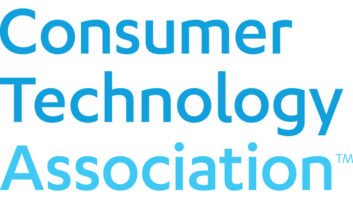
The consumer technology industry has been growing consistently for the past several years, reaching a total of $377 billion in annual revenue. Since 2017, the industry has grown 6 percent — the greatest increase since 2012, when it grew 4.6 percent over the previous year.
Some of the factors driving this growth include an improved economic climate since the Great Recession, advancements in technology, and the application of specific fulfillment services designed to cut costs and speed up delivery times. The implementation of just-in-time (JIT) delivery, for example, has helped consumer electronics manufacturers to better keep up with customers’ increasingly challenging expectations with regard to reduced shipping times.
In order fulfillment — regardless of the industry — the efficiency, accuracy and timeliness of items’ progress through the supply chain are vital. Items must be picked from the warehouse or storage facility, then, depending on the nature of the order or end-product, they might be assembled, packed into a kit, packaged and then labeled before shipping. Delays, breakdowns or inefficiencies in the supply chain will slow orders and may risk customer satisfaction, and one of the most common areas where delays occur is between the supplier or the warehouse and the fulfillment center.
See also: Apps Are Driving In-Store Sales (Really)
JIT delivery is a fulfillment service that helps to solve this problem by only delivering items when they are needed for fulfillment, instead of having them stored and taking up space on the warehouse floor. JIT delivery is used for both finished goods as well as parts, components and partially assembled goods to be completed in the supply chain and then shipped directly.
JIT used to be relegated only to fulfillment in industries with advanced manufacturing, such as automotive. However, that is no longer the case as sectors such as retail and consumer electronics have been JIT delivery to optimize their supply chain management and make fulfillment leaner and more efficient.
Watch: China Expected To Top U.S. Retail Market This Year
In order to be most successful for the purposes of fulfilling consumer technology orders, strategic inventory control is required and it will benefit logistics in a few key ways:
Reduces on-hand inventory to deal with: The nature of JIT delivery is that fulfillment has been deeply optimized to eliminate excess inventory and only manage the products or components that are necessary for current orders. Without JIT, a business’ entire stock would need to be on hand and available before production, resulting in far more complexity and far more items to handle. That said, JIT presents its own challenges in accurate forecasting for demand to ensure item availability for new orders.
Optimizes warehousing and storage space: With inventory only arriving when it is required, the amount of inventory that a fulfillment company must store is significantly reduced and warehouse space can also be reduced to cut storage costs, or be used for other kinds of inventory. Some items may be “life’d,” which means that they are so common that fulfillment centers consistently keep them in stock, such as batteries.
Decreased inventory management costs: With less inventory to manage and possibly reduced square footage of warehousing space necessary, fulfillment centers can decrease inventory management costs to a notable degree. Costs are reduced not just with storage, but also with manpower and equipment as well.
See also: New Year, New Opportunities: A Retail Owner’s Checklist
Improved cash flow: Inventory requires an initial capital investment, and with a reduced need for inventory, this capital is freed up for more flexible cash flow.
Prevent inventory degradation: With JIT delivery, inventory no longer sits on site for long periods of time, as it is essentially shipped out right after arrival. This is beneficial with some stock components, such as capacitors and resistors, which may degrade over time. Inventory degradation is prevented since this stock is held for much shorter periods of time.
By incorporating JIT delivery in the fulfillment process for consumer electronics, organizations can optimize their supply chain and significantly improve efficiency, which translates to reduced costs. JIT delivery can be the key to increased profits for the consumer electronics industry, from manufacturer to retailer.
Since 1991, Hollingsworth has supported multiple industries as a logistics and supply chain management company. With over 900,000 square feet of warehousing and an experienced team of employees, it supports brands such as Nordstrom, Bed Bath and Beyond and more. It also provides services that include kitting, packaging, warehousing, fulfillment, and reverse logistics.













